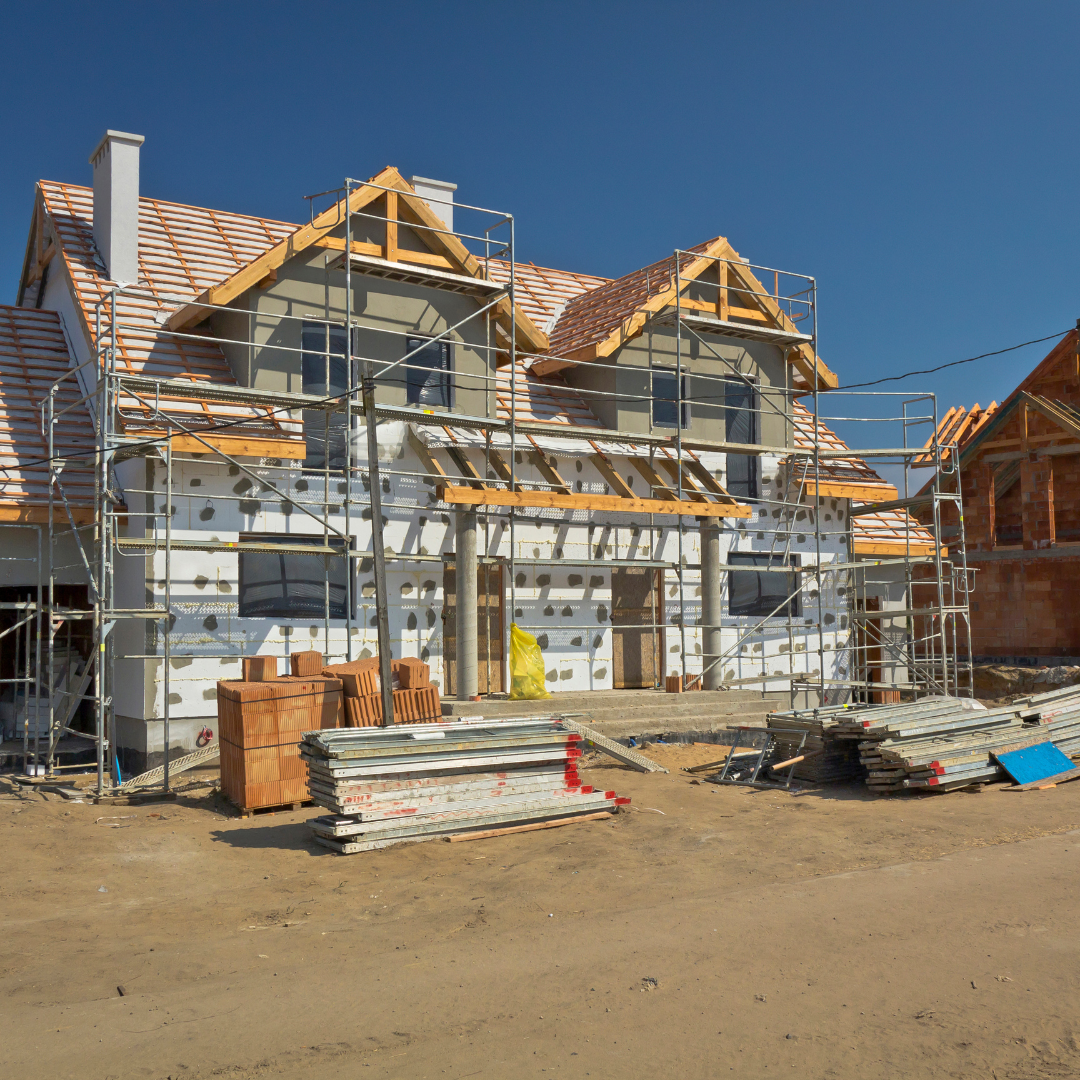
Commercial Construction vs Residential Construction
Commercial Construction vs. Residential Construction
In the world of construction, the choice between commercial and residential is an ongoing internal debate. But it must be settled before you can get your company off the ground.
Your choice can determine the type of impact you have.
You might shape the skyline with towering offices. Or you might build communities with attractive homes. Either way, your work leaves a lasting mark.
This article dives into the heart of both commercial and residential construction. We look at what each involves and how they differ. We compare the two side by side, from the types of projects to the tools you'll need.
Plus, we share three actionable tips. These will help you decide which path aligns with your business's strengths and goals.
What Is Commercial Construction?
Commercial construction is about building places where business takes place. Projects include large spaces that see heavy use. They must also be able to host larger numbers of people at once.
It's not just about putting up a building, though. It's about creating functional, safe spaces for the public.
Types of commercial construction projects include:
- Office buildings: Spaces where businesses operate
- Retail centers: Places like malls, shopping centers and smaller shops
- Industrial properties: Large buildings where products are manufactured or stored, like factories and warehouses
- Healthcare facilities: Hospitals, clinics, and other healthcare facilities
Commercial buildings are often larger and more complex than houses. They need solid framing to withstand high traffic. Components like elevators and large HVAC (Heating, Ventilation and Air Condition) systems are common.

Strict rules and regulations govern public building construction. Safety is a top priority. Every stage must comply, or you risk legal challenges.
Commercial clients are looking for spaces that will improve their work environment or better serve their customers.
RELATED ARTICLE: 17 Best Tips for Home Service Marketers to Grow Their Business
What is Residential Construction?
Residential construction focuses on building places where people live. This includes a wide range of homes. Examples are single-family houses and multi-unit residences.
It's all about creating comfortable, safe, and welcoming spaces for individuals and families.
Types of residential construction projects include:
- Single-family homes: Stand-alone houses built for one family. Each has its own yard and privacy.
- Multi-family homes: Homes with separate units attached by shared walls. Duplexes and patio homes are types of multi-family dwellings.
- Apartments: Buildings with many rental residences inside. Each family has their own space but shares the building with others.
- Condos: Like apartments, but people own their units instead of renting them.
Condominiums and apartments can be a bit of a grey area in construction. Many of the systems that they use are more commercial grade.
Large multi-floored buildings are also framed with steel vs. wood. This difference in materials also applies more to commercial construction.
Residential construction often involves working closely with the occupants. This means adding personalized touches to fit their needs.

Just like commercial construction, residential builders must abide by building codes and laws. However, they may be fewer and less complicated. They still ensure the safety, quality, and longevity of the structure. Failure to comply can also have legal consequences.
Residential clients are generally people looking to build or buy a home.
Sometimes, real estate developers are the clients. They plan and build new neighborhoods or apartment buildings on specifications to sell or rent to people.
Commercial vs. Residential Construction
There are two main types of construction: commercial and residential. Each has its own distinct features and benefits.
Let's break down the key differences between commercial and residential construction in more detail.
Job Type
Commercial construction companies build spaces for commercial enterprises. The focus is on functionality and accommodating many people at the same time.
Residential is all about building homes for people. Whether single-family homes or multi-family units, the goal is to make comfortable and safe living spaces.
RELATED ARTICLE: How to Manage Construction Projects
Scope of Work
Commercial projects are generally large in scale and scope. They usually include complex structures with detailed plans.
The scope of residential projects is often smaller. It's usually about building one freestanding house or small groups of attached homes.
Specialized Skills
When it comes to commercial construction, you need experts on your team. They should understand the required permits, materials and building codes for constructing large, complicated structures.
You may also need specialists who know the unique requirements of certain types of facilities. Hospitals, industrial plants, and restaurants are examples.
In residential construction, the skills required are more general. They revolve around building high-quality homes and meeting customer expectations. Although, just like commercial construction, a building permit is required. This can apply to remodels as well as new construction.
Residential construction could involve partnering with residential plumbers and electricians.
RELATED ARTICLE: The Importance of Training and Development in Construction
Construction Timeline
Commercial construction projects take longer because of their size and intricacy. It can take months or even years to finish a big commercial building.
Building a home is usually quicker. On average, it takes between seven and 12 months to build a home from start to finish.
Construction Cost and Contract Value
The costs and contracts for commercial projects are much higher. This is due to their scale and the materials used.
In comparison, the cost of residential builds is a lot less expensive. However, these projects require less time and resources. Contractors can complete more of them overall.
Regulations and Insurance
Commercial construction work is risky. Workers face dangers like falling. They might also use more dangerous machinery, increasing the risk of injury.
Electric shocks and exposure to hazardous materials like silica dust and asbestos are also risks.
Because of this, strict rules around worker safety, like OSHA regulations, must be uniformly followed. Insurance requirements may be more complex as well.
Homebuilders must also follow building codes, OSHA safety requirements, and permitting rules.
These standards aim to make sure the living spaces are safe and long-lasting. They may be a little different, though. There are also fewer of them, mainly due to the smaller scale, but they are no less important.
Customer Service and Marketing Approach
In commercial construction, you are often dealing with businesses or investors. The service is more formal. Contacts are usually corporate representatives, and approval processes can be lengthy.
Commercial construction marketing should focus on things like efficiency, timelines, and return on investment.
In residential construction, you aim to connect with individuals. You might work directly with the future occupants, an architect, or a real estate development team. Approvals are much faster, and adaptability is crucial.
Residential service is more personal.The marketing should talk about comfort and style and inspire a feeling of home.
Take Action Now with These 3 Tips
Are you still waffling between commercial and residential construction? The choice can direct the future of your business, so some operational considerations should factor into your decision.
RELATED ARTICLE: Six Ways to Maximize Efficiency in Your Home Service Business
Here are three steps to help you decide on the right path:
1. Consider Your Skills
Take a good look at where your skills lie. Are you great at detailed, custom work for homes? Or do you excel in managing big projects with lots of moving parts? Your strongest skills should guide your decision.
2. Take Stock of Your Tools
Check your tools and equipment inventory. For residential work, you might need a variety of smaller, precision tools.
Commercial projects often need larger, more heavy-duty equipment. Make sure you have the right gear for the job you choose or can afford to make any necessary purchases.
3. Determine Your Big-Picture Goals
What do you want for your business in the long run?
Commercial might be the way to go if you dream of big, city-changing projects.
If you prefer impacting people's lives by improving their homes, residential could be your path.
Never miss a post.
Get notified of new content